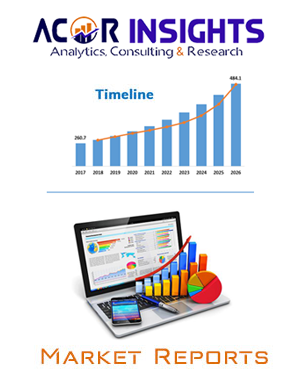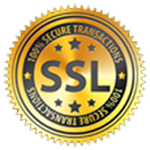PARP Inhibitors for Breast Cancer market is segmented by players, region (country), by Type and by Application. Players, stakeholders, and other participants in the global PARP Inhibitors for Breast Cancer market will be able to gain the upper hand as they use the report as a powerful resource. The segmental analysis focuses on revenue and forecast by Type and by Application for the period 2017-2028.
Segment by Type
Olaparib
Talazoparib
Segment by Application
Hospital
Clinic
Drug Center
Other
By Company
AstraZeneca
Everest Pharmaceuticals
Pfizer
By Region
North America
United States
Canada
Europe
Germany
France
UK
Italy
Russia
Nordic Countries
Rest of Europe
Asia-Pacific
China
Japan
South Korea
Southeast Asia
India
Australia
Rest of Asia
Latin America
Mexico
Brazil
Rest of Latin America
Middle East & Africa
Turkey
Saudi Arabia
UAE
Rest of MEA
1 Report Business Overview
1.1 Study Scope
1.2 Market Analysis by Type
1.2.1 Global PARP Inhibitors for Breast Cancer Market Size Growth Rate by Type, 2017 VS 2021 VS 2028
1.2.2 Olaparib
1.2.3 Talazoparib
1.3 Market by Application
1.3.1 Global PARP Inhibitors for Breast Cancer Market Size Growth Rate by Application, 2017 VS 2021 VS 2028
1.3.2 Hospital
1.3.3 Clinic
1.3.4 Drug Center
1.3.5 Other
1.4 Study Objectives
1.5 Years Considered
2 Global Growth Trends
2.1 Global PARP Inhibitors for Breast Cancer Market Perspective (2017-2028)
2.2 PARP Inhibitors for Breast Cancer Growth Trends by Region
2.2.1 PARP Inhibitors for Breast Cancer Market Size by Region: 2017 VS 2021 VS 2028
2.2.2 PARP Inhibitors for Breast Cancer Historic Market Size by Region (2017-2022)
2.2.3 PARP Inhibitors for Breast Cancer Forecasted Market Size by Region (2023-2028)
2.3 PARP Inhibitors for Breast Cancer Market Dynamics
2.3.1 PARP Inhibitors for Breast Cancer Industry Trends
2.3.2 PARP Inhibitors for Breast Cancer Market Drivers
2.3.3 PARP Inhibitors for Breast Cancer Market Challenges
2.3.4 PARP Inhibitors for Breast Cancer Market Restraints
3 Competition Landscape by Key Players
3.1 Global Top PARP Inhibitors for Breast Cancer Players by Revenue
3.1.1 Global Top PARP Inhibitors for Breast Cancer Players by Revenue (2017-2022)
3.1.2 Global PARP Inhibitors for Breast Cancer Revenue Market Share by Players (2017-2022)
3.2 Global PARP Inhibitors for Breast Cancer Market Share by Company Type (Tier 1, Tier 2, and Tier 3)
3.3 Players Covered: Ranking by PARP Inhibitors for Breast Cancer Revenue
3.4 Global PARP Inhibitors for Breast Cancer Market Concentration Ratio
3.4.1 Global PARP Inhibitors for Breast Cancer Market Concentration Ratio (CR5 and HHI)
3.4.2 Global Top 10 and Top 5 Companies by PARP Inhibitors for Breast Cancer Revenue in 2021
3.5 PARP Inhibitors for Breast Cancer Key Players Head office and Area Served
3.6 Key Players PARP Inhibitors for Breast Cancer Product Solution and Service
3.7 Date of Enter into PARP Inhibitors for Breast Cancer Market
3.8 Mergers & Acquisitions, Expansion Plans
4 PARP Inhibitors for Breast Cancer Breakdown Data by Type
4.1 Global PARP Inhibitors for Breast Cancer Historic Market Size by Type (2017-2022)
4.2 Global PARP Inhibitors for Breast Cancer Forecasted Market Size by Type (2023-2028)
5 PARP Inhibitors for Breast Cancer Breakdown Data by Application
5.1 Global PARP Inhibitors for Breast Cancer Historic Market Size by Application (2017-2022)
5.2 Global PARP Inhibitors for Breast Cancer Forecasted Market Size by Application (2023-2028)
6 North America
6.1 North America PARP Inhibitors for Breast Cancer Market Size (2017-2028)
6.2 North America PARP Inhibitors for Breast Cancer Market Size by Type
6.2.1 North America PARP Inhibitors for Breast Cancer Market Size by Type (2017-2022)
6.2.2 North America PARP Inhibitors for Breast Cancer Market Size by Type (2023-2028)
6.2.3 North America PARP Inhibitors for Breast Cancer Market Share by Type (2017-2028)
6.3 North America PARP Inhibitors for Breast Cancer Market Size by Application
6.3.1 North America PARP Inhibitors for Breast Cancer Market Size by Application (2017-2022)
6.3.2 North America PARP Inhibitors for Breast Cancer Market Size by Application (2023-2028)
6.3.3 North America PARP Inhibitors for Breast Cancer Market Share by Application (2017-2028)
6.4 North America PARP Inhibitors for Breast Cancer Market Size by Country
6.4.1 North America PARP Inhibitors for Breast Cancer Market Size by Country (2017-2022)
6.4.2 North America PARP Inhibitors for Breast Cancer Market Size by Country (2023-2028)
6.4.3 U.S.
6.4.4 Canada
7 Europe
7.1 Europe PARP Inhibitors for Breast Cancer Market Size (2017-2028)
7.2 Europe PARP Inhibitors for Breast Cancer Market Size by Type
7.2.1 Europe PARP Inhibitors for Breast Cancer Market Size by Type (2017-2022)
7.2.2 Europe PARP Inhibitors for Breast Cancer Market Size by Type (2023-2028)
7.2.3 Europe PARP Inhibitors for Breast Cancer Market Share by Type (2017-2028)
7.3 Europe PARP Inhibitors for Breast Cancer Market Size by Application
7.3.1 Europe PARP Inhibitors for Breast Cancer Market Size by Application (2017-2022)
7.3.2 Europe PARP Inhibitors for Breast Cancer Market Size by Application (2023-2028)
7.3.3 Europe PARP Inhibitors for Breast Cancer Market Share by Application (2017-2028)
7.4 Europe PARP Inhibitors for Breast Cancer Market Size by Country
7.4.1 Europe PARP Inhibitors for Breast Cancer Market Size by Country (2017-2022)
7.4.2 Europe PARP Inhibitors for Breast Cancer Market Size by Country (2023-2028)
7.4.3 Germany
7.4.4 France
7.4.5 U.K.
7.4.6 Italy
7.4.7 Russia
7.4.8 Nordic Countries
8 Asia-Pacific
8.1 Asia-Pacific PARP Inhibitors for Breast Cancer Market Size (2017-2028)
8.2 Asia-Pacific PARP Inhibitors for Breast Cancer Market Size by Type
8.2.1 Asia-Pacific PARP Inhibitors for Breast Cancer Market Size by Type (2017-2022)
8.2.2 Asia-Pacific PARP Inhibitors for Breast Cancer Market Size by Type (2023-2028)
8.2.3 Asia-Pacific PARP Inhibitors for Breast Cancer Market Share by Type (2017-2028)
8.3 Asia-Pacific PARP Inhibitors for Breast Cancer Market Size by Application
8.3.1 Asia-Pacific PARP Inhibitors for Breast Cancer Market Size by Application (2017-2022)
8.3.2 Asia-Pacific PARP Inhibitors for Breast Cancer Market Size by Application (2023-2028)
8.3.3 Asia-Pacific PARP Inhibitors for Breast Cancer Market Share by Application (2017-2028)
8.4 Asia-Pacific PARP Inhibitors for Breast Cancer Market Size by Region
8.4.1 Asia-Pacific PARP Inhibitors for Breast Cancer Market Size by Region (2017-2022)
8.4.2 Asia-Pacific PARP Inhibitors for Breast Cancer Market Size by Region (2023-2028)
8.4.3 China
8.4.4 Japan
8.4.5 South Korea
8.4.6 Southeast Asia
8.4.7 India
8.4.8 Australia
9 Latin America
9.1 Latin America PARP Inhibitors for Breast Cancer Market Size (2017-2028)
9.2 Latin America PARP Inhibitors for Breast Cancer Market Size by Type
9.2.1 Latin America PARP Inhibitors for Breast Cancer Market Size by Type (2017-2022)
9.2.2 Latin America PARP Inhibitors for Breast Cancer Market Size by Type (2023-2028)
9.2.3 Latin America PARP Inhibitors for Breast Cancer Market Share by Type (2017-2028)
9.3 Latin America PARP Inhibitors for Breast Cancer Market Size by Application
9.3.1 Latin America PARP Inhibitors for Breast Cancer Market Size by Application (2017-2022)
9.3.2 Latin America PARP Inhibitors for Breast Cancer Market Size by Application (2023-2028)
9.3.3 Latin America PARP Inhibitors for Breast Cancer Market Share by Application (2017-2028)
9.4 Latin America PARP Inhibitors for Breast Cancer Market Size by Country
9.4.1 Latin America PARP Inhibitors for Breast Cancer Market Size by Country (2017-2022)
9.4.2 Latin America PARP Inhibitors for Breast Cancer Market Size by Country (2023-2028)
9.4.3 Mexico
9.4.4 Brazil
10 Middle East & Africa
10.1 Middle East & Africa PARP Inhibitors for Breast Cancer Market Size (2017-2028)
10.2 Middle East & Africa PARP Inhibitors for Breast Cancer Market Size by Type
10.2.1 Middle East & Africa PARP Inhibitors for Breast Cancer Market Size by Type (2017-2022)
10.2.2 Middle East & Africa PARP Inhibitors for Breast Cancer Market Size by Type (2023-2028)
10.2.3 Middle East & Africa PARP Inhibitors for Breast Cancer Market Share by Type (2017-2028)
10.3 Middle East & Africa PARP Inhibitors for Breast Cancer Market Size by Application
10.3.1 Middle East & Africa PARP Inhibitors for Breast Cancer Market Size by Application (2017-2022)
10.3.2 Middle East & Africa PARP Inhibitors for Breast Cancer Market Size by Application (2023-2028)
10.3.3 Middle East & Africa PARP Inhibitors for Breast Cancer Market Share by Application (2017-2028)
10.4 Middle East & Africa PARP Inhibitors for Breast Cancer Market Size by Country
10.4.1 Middle East & Africa PARP Inhibitors for Breast Cancer Market Size by Country (2017-2022)
10.4.2 Middle East & Africa PARP Inhibitors for Breast Cancer Market Size by Country (2023-2028)
10.4.3 Turkey
10.4.4 Saudi Arabia
10.4.5 UAE
11 Key Players Profiles
11.1 AstraZeneca
11.1.1 AstraZeneca Company Details
11.1.2 AstraZeneca Business Overview
11.1.3 AstraZeneca PARP Inhibitors for Breast Cancer Introduction
11.1.4 AstraZeneca Revenue in PARP Inhibitors for Breast Cancer Business (2017-2022)
11.1.5 AstraZeneca Recent Developments
11.2 Everest Pharmaceuticals
11.2.1 Everest Pharmaceuticals Company Details
11.2.2 Everest Pharmaceuticals Business Overview
11.2.3 Everest Pharmaceuticals PARP Inhibitors for Breast Cancer Introduction
11.2.4 Everest Pharmaceuticals Revenue in PARP Inhibitors for Breast Cancer Business (2017-2022)
11.2.5 Everest Pharmaceuticals Recent Developments
11.3 Pfizer
11.3.1 Pfizer Company Details
11.3.2 Pfizer Business Overview
11.3.3 Pfizer PARP Inhibitors for Breast Cancer Introduction
11.3.4 Pfizer Revenue in PARP Inhibitors for Breast Cancer Business (2017-2022)
11.3.5 Pfizer Recent Developments
12 Analyst's Viewpoints/Conclusions
13 Appendix
13.1 Research Methodology
13.1.1 Methodology/Research Approach
13.1.2 Data Source
13.2 Author Details
13.3 Disclaimer
List of Tables
Table 1. Global PARP Inhibitors for Breast Cancer Market Size Growth Rate by Type (US$ Million), 2017 VS 2021 VS 2028
Table 2. Key Players of Olaparib
Table 3. Key Players of Talazoparib
Table 4. Global PARP Inhibitors for Breast Cancer Market Size Growth Rate by Application (US$ Million), 2017 VS 2021 VS 2028
Table 5. Global PARP Inhibitors for Breast Cancer Market Size by Region (US$ Million): 2017 VS 2021 VS 2028
Table 6. Global PARP Inhibitors for Breast Cancer Market Size by Region (2017-2022) & (US$ Million)
Table 7. Global PARP Inhibitors for Breast Cancer Market Share by Region (2017-2022)
Table 8. Global PARP Inhibitors for Breast Cancer Forecasted Market Size by Region (2023-2028) & (US$ Million)
Table 9. Global PARP Inhibitors for Breast Cancer Market Share by Region (2023-2028)
Table 10. PARP Inhibitors for Breast Cancer Market Trends
Table 11. PARP Inhibitors for Breast Cancer Market Drivers
Table 12. PARP Inhibitors for Breast Cancer Market Challenges
Table 13. PARP Inhibitors for Breast Cancer Market Restraints
Table 14. Global PARP Inhibitors for Breast Cancer Revenue by Players (2017-2022) & (US$ Million)
Table 15. Global PARP Inhibitors for Breast Cancer Revenue Share by Players (2017-2022)
Table 16. Global Top PARP Inhibitors for Breast Cancer by Company Type (Tier 1, Tier 2, and Tier 3) & (based on the Revenue in PARP Inhibitors for Breast Cancer as of 2021)
Table 17. Ranking of Global Top PARP Inhibitors for Breast Cancer Companies by Revenue (US$ Million) in 2021
Table 18. Global 5 Largest Players Market Share by PARP Inhibitors for Breast Cancer Revenue (CR5 and HHI) & (2017-2022)
Table 19. Key Players Headquarters and Area Served
Table 20. Key Players PARP Inhibitors for Breast Cancer Product Solution and Service
Table 21. Date of Enter into PARP Inhibitors for Breast Cancer Market
Table 22. Mergers & Acquisitions, Expansion Plans
Table 23. Global PARP Inhibitors for Breast Cancer Market Size by Type (2017-2022) & (US$ Million)
Table 24. Global PARP Inhibitors for Breast Cancer Revenue Market Share by Type (2017-2022)
Table 25. Global PARP Inhibitors for Breast Cancer Forecasted Market Size by Type (2023-2028) & (US$ Million)
Table 26. Global PARP Inhibitors for Breast Cancer Revenue Market Share by Type (2023-2028)
Table 27. Global PARP Inhibitors for Breast Cancer Market Size by Application (2017-2022) & (US$ Million)
Table 28. Global PARP Inhibitors for Breast Cancer Revenue Share by Application (2017-2022)
Table 29. Global PARP Inhibitors for Breast Cancer Forecasted Market Size by Application (2023-2028) & (US$ Million)
Table 30. Global PARP Inhibitors for Breast Cancer Revenue Share by Application (2023-2028)
Table 31. North America PARP Inhibitors for Breast Cancer Market Size by Type (2017-2022) & (US$ Million)
Table 32. North America PARP Inhibitors for Breast Cancer Market Size by Type (2023-2028) & (US$ Million)
Table 33. North America PARP Inhibitors for Breast Cancer Market Size by Application (2017-2022) & (US$ Million)
Table 34. North America PARP Inhibitors for Breast Cancer Market Size by Application (2023-2028) & (US$ Million)
Table 35. North America PARP Inhibitors for Breast Cancer Market Size by Country (2017-2022) & (US$ Million)
Table 36. North America PARP Inhibitors for Breast Cancer Market Size by Country (2023-2028) & (US$ Million)
Table 37. Europe PARP Inhibitors for Breast Cancer Market Size by Type (2017-2022) & (US$ Million)
Table 38. Europe PARP Inhibitors for Breast Cancer Market Size by Type (2023-2028) & (US$ Million)
Table 39. Europe PARP Inhibitors for Breast Cancer Market Size by Application (2017-2022) & (US$ Million)
Table 40. Europe PARP Inhibitors for Breast Cancer Market Size by Application (2023-2028) & (US$ Million)
Table 41. Europe PARP Inhibitors for Breast Cancer Market Size by Country (2017-2022) & (US$ Million)
Table 42. Europe PARP Inhibitors for Breast Cancer Market Size by Country (2023-2028) & (US$ Million)
Table 43. Asia Pacific PARP Inhibitors for Breast Cancer Market Size by Type (2017-2022) & (US$ Million)
Table 44. Asia Pacific PARP Inhibitors for Breast Cancer Market Size by Type (2023-2028) & (US$ Million)
Table 45. Asia Pacific PARP Inhibitors for Breast Cancer Market Size by Application (2017-2022) & (US$ Million)
Table 46. Asia Pacific PARP Inhibitors for Breast Cancer Market Size by Application (2023-2028) & (US$ Million)
Table 47. Asia Pacific PARP Inhibitors for Breast Cancer Market Size by Region (2017-2022) & (US$ Million)
Table 48. Asia Pacific PARP Inhibitors for Breast Cancer Market Size by Region (2023-2028) & (US$ Million)
Table 49. Latin America PARP Inhibitors for Breast Cancer Market Size by Type (2017-2022) & (US$ Million)
Table 50. Latin America PARP Inhibitors for Breast Cancer Market Size by Type (2023-2028) & (US$ Million)
Table 51. Latin America PARP Inhibitors for Breast Cancer Market Size by Application (2017-2022) & (US$ Million)
Table 52. Latin America PARP Inhibitors for Breast Cancer Market Size by Application (2023-2028) & (US$ Million)
Table 53. Latin America PARP Inhibitors for Breast Cancer Market Size by Country (2017-2022) & (US$ Million)
Table 54. Latin America PARP Inhibitors for Breast Cancer Market Size by Country (2023-2028) & (US$ Million)
Table 55. Middle East and Africa PARP Inhibitors for Breast Cancer Market Size by Type (2017-2022) & (US$ Million)
Table 56. Middle East and Africa PARP Inhibitors for Breast Cancer Market Size by Type (2023-2028) & (US$ Million)
Table 57. Middle East and Africa PARP Inhibitors for Breast Cancer Market Size by Application (2017-2022) & (US$ Million)
Table 58. Middle East and Africa PARP Inhibitors for Breast Cancer Market Size by Application (2023-2028) & (US$ Million)
Table 59. Middle East and Africa PARP Inhibitors for Breast Cancer Market Size by Country (2017-2022) & (US$ Million)
Table 60. Middle East and Africa PARP Inhibitors for Breast Cancer Market Size by Country (2023-2028) & (US$ Million)
Table 61. AstraZeneca Company Details
Table 62. AstraZeneca Business Overview
Table 63. AstraZeneca PARP Inhibitors for Breast Cancer Product
Table 64. AstraZeneca Revenue in PARP Inhibitors for Breast Cancer Business (2017-2022) & (US$ Million)
Table 65. AstraZeneca Recent Developments
Table 66. Everest Pharmaceuticals Company Details
Table 67. Everest Pharmaceuticals Business Overview
Table 68. Everest Pharmaceuticals PARP Inhibitors for Breast Cancer Product
Table 69. Everest Pharmaceuticals Revenue in PARP Inhibitors for Breast Cancer Business (2017-2022) & (US$ Million)
Table 70. Everest Pharmaceuticals Recent Developments
Table 71. Pfizer Company Details
Table 72. Pfizer Business Overview
Table 73. Pfizer PARP Inhibitors for Breast Cancer Product
Table 74. Pfizer Revenue in PARP Inhibitors for Breast Cancer Business (2017-2022) & (US$ Million)
Table 75. Pfizer Recent Developments
Table 76. Research Programs/Design for This Report
Table 77. Key Data Information from Secondary Sources
Table 78. Key Data Information from Primary Sources
List of Figures
Figure 1. Global PARP Inhibitors for Breast Cancer Market Share by Type: 2021 VS 2028
Figure 2. Olaparib Features
Figure 3. Talazoparib Features
Figure 4. Global PARP Inhibitors for Breast Cancer Market Share by Application: 2021 VS 2028
Figure 5. Hospital Case Studies
Figure 6. Clinic Case Studies
Figure 7. Drug Center Case Studies
Figure 8. Other Case Studies
Figure 9. PARP Inhibitors for Breast Cancer Report Years Considered
Figure 10. Global PARP Inhibitors for Breast Cancer Market Size (US$ Million), Year-over-Year: 2017-2028
Figure 11. Global PARP Inhibitors for Breast Cancer Market Size, (US$ Million), 2017 VS 2021 VS 2028
Figure 12. Global PARP Inhibitors for Breast Cancer Market Share by Region: 2021 VS 2028
Figure 13. Global PARP Inhibitors for Breast Cancer Market Share by Players in 2021
Figure 14. Global Top PARP Inhibitors for Breast Cancer Players by Company Type (Tier 1, Tier 2, and Tier 3) & (based on the Revenue in PARP Inhibitors for Breast Cancer as of 2021)
Figure 15. The Top 10 and 5 Players Market Share by PARP Inhibitors for Breast Cancer Revenue in 2021
Figure 16. North America PARP Inhibitors for Breast Cancer Market Size YoY (2017-2028) & (US$ Million)
Figure 17. North America PARP Inhibitors for Breast Cancer Market Size Market Share by Type (2017-2028)
Figure 18. North America PARP Inhibitors for Breast Cancer Market Size Market Share by Application (2017-2028)
Figure 19. North America PARP Inhibitors for Breast Cancer Market Size Share by Country (2017-2028)
Figure 20. United States PARP Inhibitors for Breast Cancer Market Size YoY Growth (2017-2028) & (US$ Million)
Figure 21. Canada PARP Inhibitors for Breast Cancer Market Size YoY Growth (2017-2028) & (US$ Million)
Figure 22. Europe PARP Inhibitors for Breast Cancer Market Size YoY (2017-2028) & (US$ Million)
Figure 23. Europe PARP Inhibitors for Breast Cancer Market Size Market Share by Type (2017-2028)
Figure 24. Europe PARP Inhibitors for Breast Cancer Market Size Market Share by Application (2017-2028)
Figure 25. Europe PARP Inhibitors for Breast Cancer Market Size Share by Country (2017-2028)
Figure 26. Germany PARP Inhibitors for Breast Cancer Market Size YoY Growth (2017-2028) & (US$ Million)
Figure 27. France PARP Inhibitors for Breast Cancer Market Size YoY Growth (2017-2028) & (US$ Million)
Figure 28. U.K. PARP Inhibitors for Breast Cancer Market Size YoY Growth (2017-2028) & (US$ Million)
Figure 29. Italy PARP Inhibitors for Breast Cancer Market Size YoY Growth (2017-2028) & (US$ Million)
Figure 30. Russia PARP Inhibitors for Breast Cancer Market Size YoY Growth (2017-2028) & (US$ Million)
Figure 31. Nordic Countries PARP Inhibitors for Breast Cancer Market Size YoY Growth (2017-2028) & (US$ Million)
Figure 32. Asia-Pacific PARP Inhibitors for Breast Cancer Market Size YoY (2017-2028) & (US$ Million)
Figure 33. Asia Pacific PARP Inhibitors for Breast Cancer Market Size Market Share by Type (2017-2028)
Figure 34. Asia Pacific PARP Inhibitors for Breast Cancer Market Size Market Share by Application (2017-2028)
Figure 35. Asia Pacific PARP Inhibitors for Breast Cancer Market Size Share by Region (2017-2028)
Figure 36. China PARP Inhibitors for Breast Cancer Market Size YoY Growth (2017-2028) & (US$ Million)
Figure 37. Japan PARP Inhibitors for Breast Cancer Market Size YoY Growth (2017-2028) & (US$ Million)
Figure 38. South Korea PARP Inhibitors for Breast Cancer Market Size YoY Growth (2017-2028) & (US$ Million)
Figure 39. Southeast Asia PARP Inhibitors for Breast Cancer Market Size YoY Growth (2017-2028) & (US$ Million)
Figure 40. India PARP Inhibitors for Breast Cancer Market Size YoY Growth (2017-2028) & (US$ Million)
Figure 41. Australia PARP Inhibitors for Breast Cancer Market Size YoY Growth (2017-2028) & (US$ Million)
List of Figures
Figure 42. Latin America PARP Inhibitors for Breast Cancer Market Size YoY (2017-2028) & (US$ Million)
Figure 43. Latin America PARP Inhibitors for Breast Cancer Market Size Market Share by Type (2017-2028)
Figure 44. Latin America PARP Inhibitors for Breast Cancer Market Size Market Share by Application (2017-2028)
Figure 45. Latin America PARP Inhibitors for Breast Cancer Market Size Share by Country (2017-2028)
Figure 46. Mexico PARP Inhibitors for Breast Cancer Market Size YoY Growth (2017-2028) & (US$ Million)
Figure 47. Brazil PARP Inhibitors for Breast Cancer Market Size YoY Growth (2017-2028) & (US$ Million)
Figure 48. Middle East & Africa PARP Inhibitors for Breast Cancer Market Size YoY (2017-2028) & (US$ Million)
Figure 49. Middle East and Africa PARP Inhibitors for Breast Cancer Market Size Market Share by Type (2017-2028)
Figure 50. Middle East and Africa PARP Inhibitors for Breast Cancer Market Size Market Share by Application (2017-2028)
Figure 51. Middle East and Africa PARP Inhibitors for Breast Cancer Market Size Share by Country (2017-2028)
Figure 52. Turkey PARP Inhibitors for Breast Cancer Market Size YoY Growth (2017-2028) & (US$ Million)
Figure 53. Saudi Arabia PARP Inhibitors for Breast Cancer Market Size YoY Growth (2017-2028) & (US$ Million)
Figure 54. UAE PARP Inhibitors for Breast Cancer Market Size YoY Growth (2017-2028) & (US$ Million)
Figure 55. AstraZeneca Revenue Growth Rate in PARP Inhibitors for Breast Cancer Business (2017-2022)
Figure 56. Everest Pharmaceuticals Revenue Growth Rate in PARP Inhibitors for Breast Cancer Business (2017-2022)
Figure 57. Pfizer Revenue Growth Rate in PARP Inhibitors for Breast Cancer Business (2017-2022)
Figure 58. Bottom-up and Top-down Approaches for This Report
Figure 59. Data Triangulation
Figure 60. Key Executives Interviewed
 +1 347 708 0418
+1 347 708 0418





 Buy
Buy







